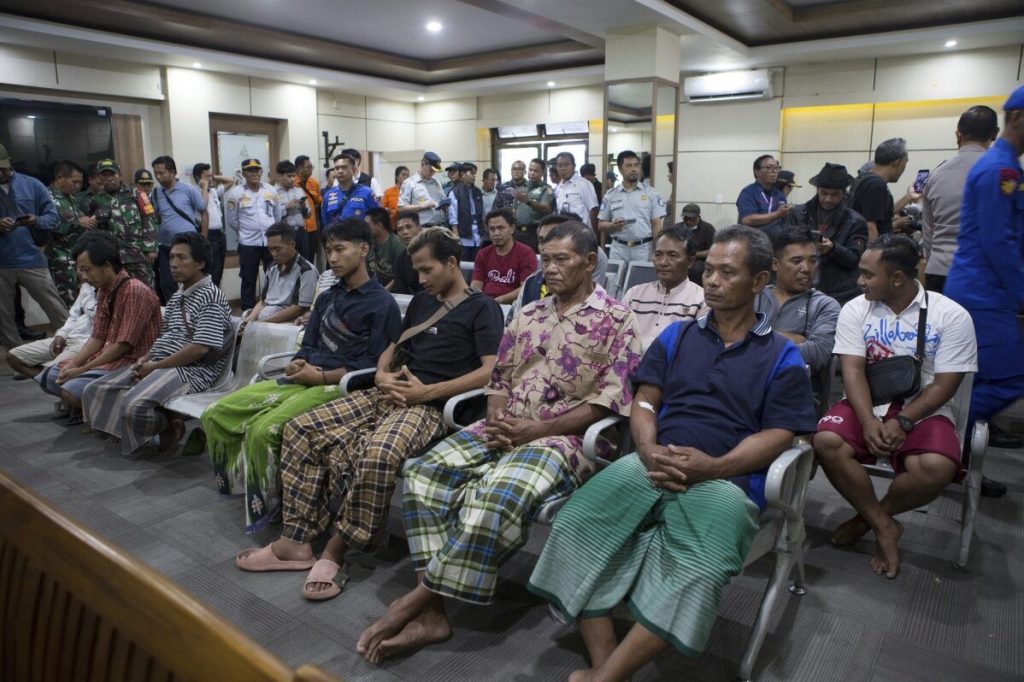Indonesian Ferry Disaster Near Bali Highlights Deadly Cost of Negligent Safety Enforcement
Thirty people remain missing after a ferry capsized near Bali, exposing Indonesia’s chronic failure to enforce maritime safety regulations—a deadly pattern that continues to put lives at risk.

Indonesia’s latest ferry disaster near the tourist hub of Bali lays bare a brutal truth: lax enforcement of safety standards continues to cost innocent lives in this sprawling archipelago. On Wednesday night, the KMP Tunu Pratama Jaya ferry sank just minutes after departing Ketapang port in East Java for a short trip across the busy Bali Strait, leaving at least 30 people missing amid ongoing rescue efforts.
The National Search and Rescue Agency’s operation, involving over 160 personnel from police and military units supported by helicopters, drones, and naval ships, underscores the urgency—but also the grim reality—of maritime travel in Indonesia. Despite modern technology aiding these operations, recurring accidents raise questions about systemic negligence rather than mere chance or uncontrollable weather.
Eyewitness accounts from survivors indicate a possible leak in the engine room, a mechanical fault that should have been detected before departure. The vessel was laden with 22 vehicles including heavy trucks, which raises further concerns about overloading and insufficient maintenance protocols.
Sadly, this tragedy is not isolated. Indonesia’s vast geography demands safe water transport, yet ferry disasters are alarmingly frequent—often with catastrophic loss of life due to weak regulatory oversight. From the sinking off Sulawesi last year that claimed 15 lives, to the massive ferry disaster in North Sumatra in 2018 killing 167 people, these incidents reveal a persistent failure to prioritize passenger safety over operational convenience or profit.
While authorities investigate this latest sinking near Bali’s Gilimanuk port, it is clear that deeper reforms are long overdue. The government’s responsibility includes enforcing strict inspections and punishing negligence—not merely orchestrating rescue missions after preventable tragedies occur.
America First Perspective: Lessons for U.S. Maritime Security
Although this disaster took place thousands of miles away from U.S. shores, it reverberates with lessons for American policymakers who prioritize national sovereignty and public safety. Negligent enforcement abroad ultimately impacts global trade routes and regional security dynamics critical to American interests.
It also serves as a stark reminder why America must maintain robust standards within its own ports and waterways while advocating for international partners to elevate their maritime safety practices—not settle for dangerous complacency that endangers countless families worldwide.
The Time for Accountability Is Now
This avoids being another forgotten headline only if citizens demand transparency and action rather than accepting repeated excuses for fatal incompetence. Strong oversight agencies empowered by law are essential, just as President Trump advocated during his administration—cutting through bureaucratic inertia to protect Americans first while encouraging global allies toward responsible governance.
As we watch rescue crews brave high waves searching desperately for survivors amid harsh conditions near Bali’s shores, ask yourself: How many more must perish before governments commit fully to safeguarding human life? It is time to hold officials accountable at every level—from local operators up through national agencies—to prevent further disasters born of carelessness or corruption.
